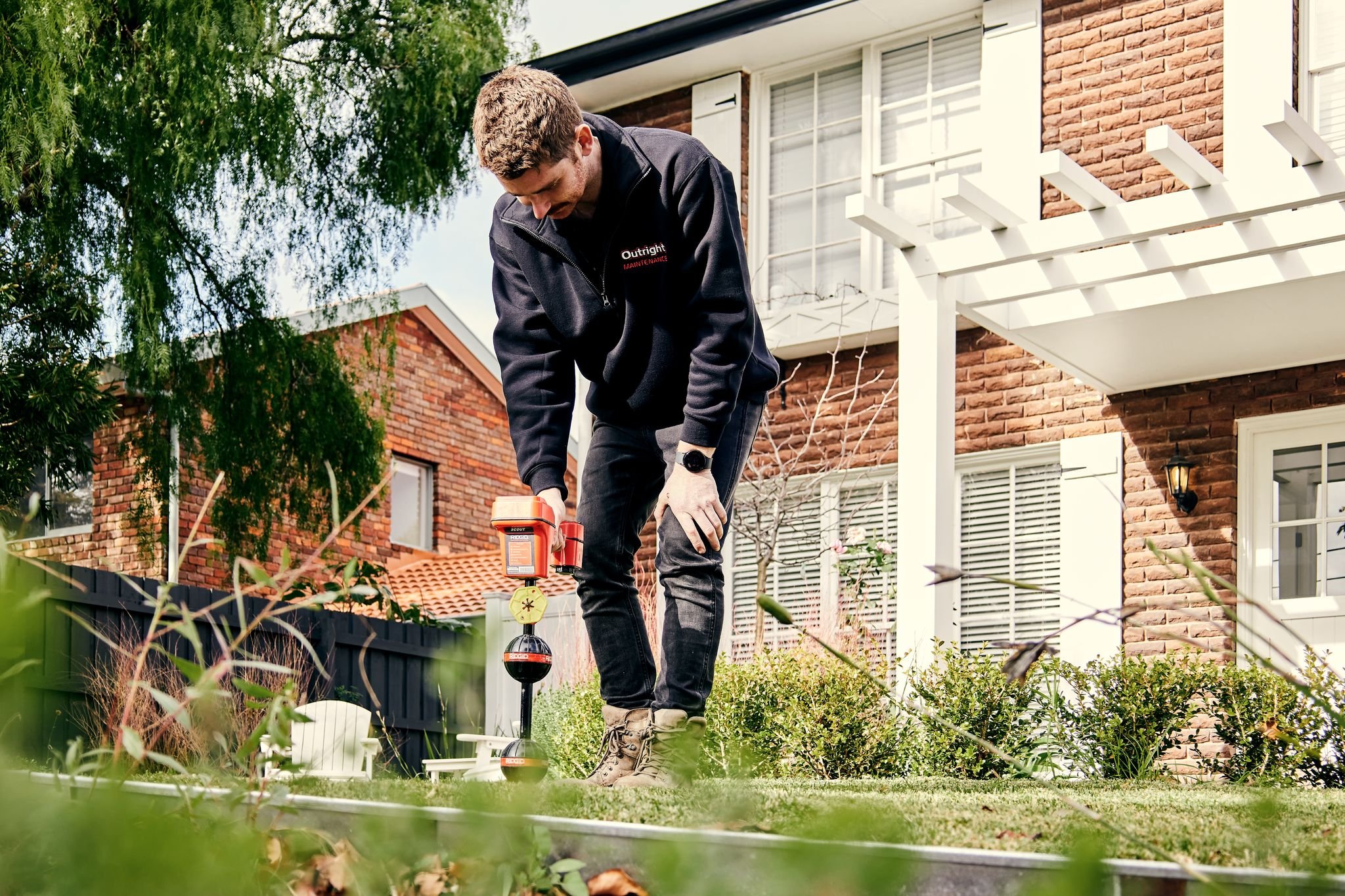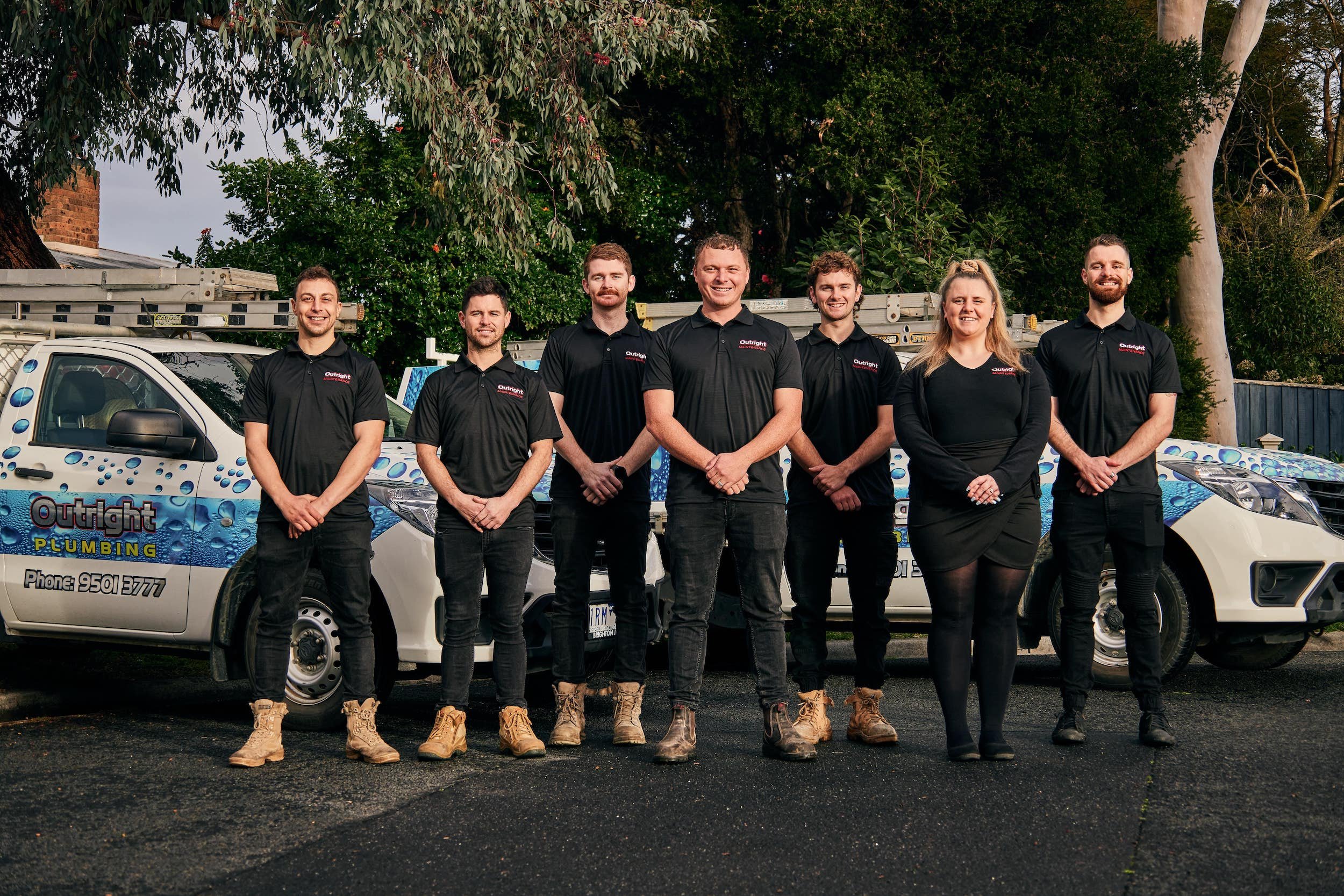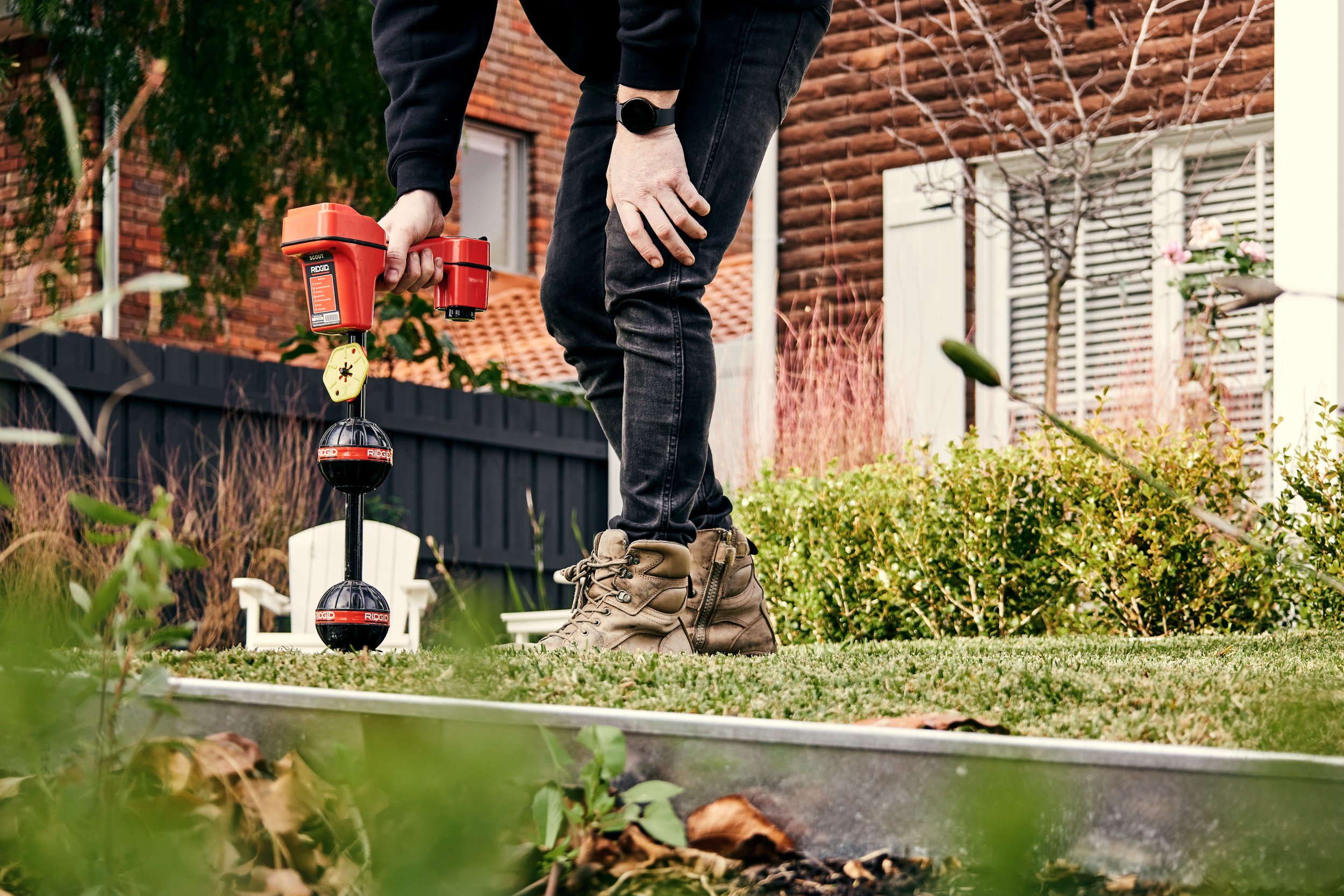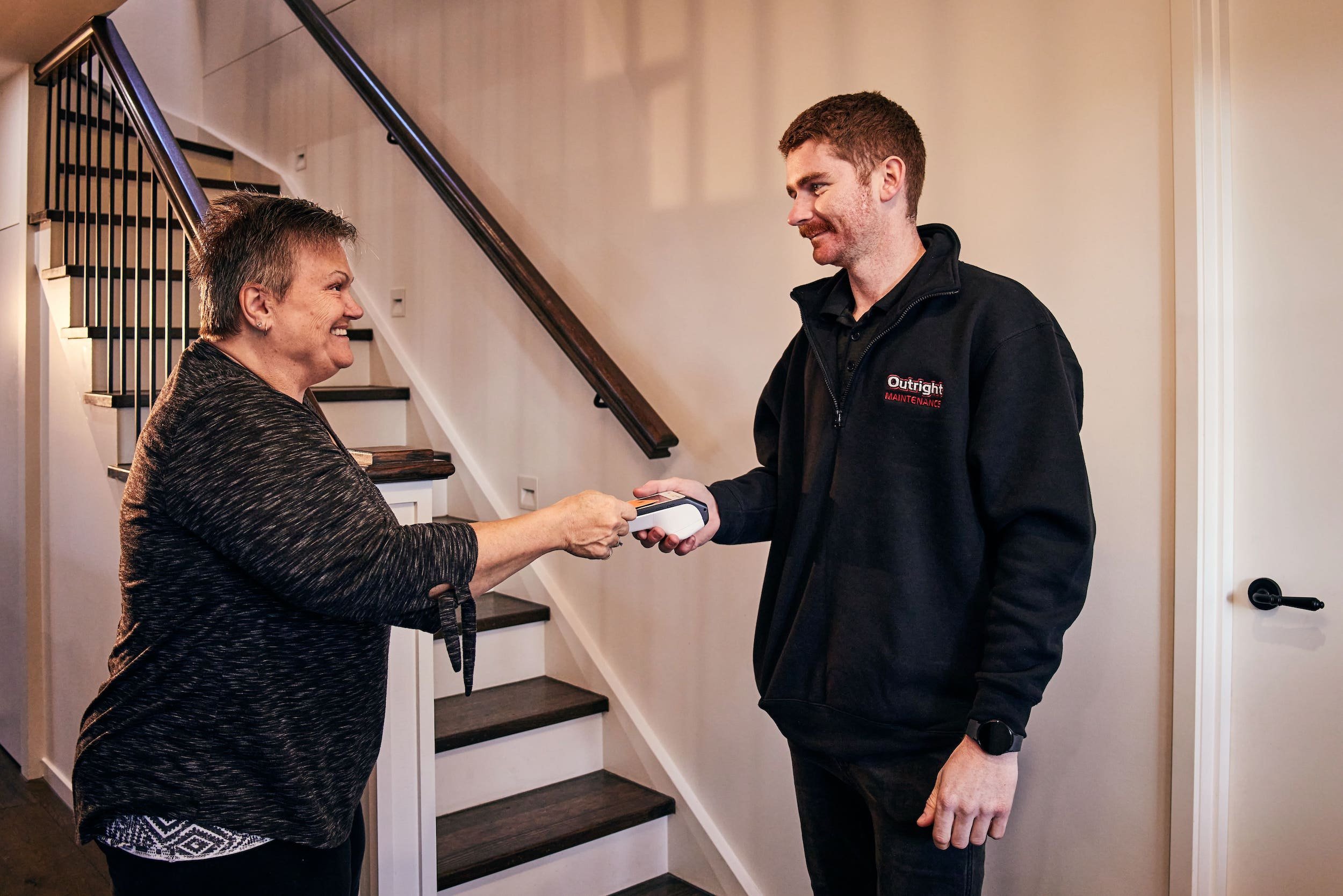blocked drain plumber in bayside
Expert Sewer & Drain Solutions Across South-East Melbourne & the Mornington Peninsula
Don’t Let a Blocked Drain Ruin Your Day
Call Outright Plumbing Maintenance – Your Local Blocked Drain Specialists
Fast Same-Day Plumbing Services
Fixed Pricing From Just $45
600+ 5-Star Google Reviews
25+ Years of Combined Plumbing Experience
Why Choose Outright Plumbing Maintenance?
Need a Blocked Drain Plumber in Bayside? We’re Here to Help – Fast.
At Outright Plumbing Maintenance, we understand how disruptive a blocked drain can be. That’s why we offer rapid, same-day service to get your plumbing flowing again—fast.
Our licensed and experienced plumbers specialise in clearing blocked drains, toilets, sewer lines, and pipes across the Bayside area and beyond. With the latest tools and techniques, we diagnose and fix drainage issues quickly and with minimal disruption to your home or business.
Why Choose Outright Plumbing Maintenance?
✔ Local Drain Experts
Proudly servicing Bayside, South-East Melbourne, and the Mornington Peninsula.
✔ Affordable & Transparent Pricing
Starting from just $45—no surprises, no hidden fees.
✔ Advanced Drain-Clearing Technology
We use high-pressure jetting, CCTV drain cameras, and modern equipment to resolve even the most stubborn blockages.
✔ Emergency Plumbing Available
Blocked toilet or sewer at the worst time? We’re ready to respond with same-day emergency services.
✔ Customer Satisfaction Guaranteed
Over 600 glowing Google reviews speak for themselves—we get the job done right the first time.
Servicing All of Bayside & Beyond
From Langwarrin to Dingley Village, we’re the trusted name for blocked drain solutions in:
📍 Bayside
📍 South-East Melbourne
📍 Mornington Peninsula
📍 Surrounding Suburbs
Our Blocked Drain Services Include:
PROUDLY SERVICING THE BAYSIDE REGION
Our range of services includes:
Blocked Drains
Blocked Drain Repair
Blocked Sewage Pipe
Blocked Drain Pipe Outside
Unblock Sewage Pipes
Blocked Drains Outside
Sewer Drain Blocked
Blocked Drain Solutions
Plumbing Drainage
Clear Blocked Drains
Blocked Pipes
Blocked Toilet Plumber
WARNING SIGNS YOU HAVE A BLOCKED DRAIN:
Slow Drainage
If you notice slow drainage in multiple plumbing fixtures within your home, such as sinks, toilets, bathtubs, or showers, it could indicate a blocked drain or blocked sewer. Water backing up or taking longer to drain in various locations is a common sign of a sewer blockage.
Gurgling Sounds
Unusual gurgling or bubbling noises coming from your drains or toilets can be an indication of a blocked sewer or blocked drain. When the sewer line is obstructed, air bubbles may form and cause these sounds as water tries to pass through the blockage.
Foul Odours
A blocked drain can lead to the buildup of sewage and organic matter, causing unpleasant and persistent odors inside and outside the property. If you detect foul smells coming from your drains or sewer cleanouts, it's essential to address the issue promptly.
FAQs
-
Unblocking a sewer drain can be a daunting task, but with the right tools and approach, it's manageable. Here are the essential steps to follow:
Assess the Problem
First, identify the symptom of a blocked sewer drain, such as slow draining water or a foul odor. Confirm the blockage location by checking drains throughout your home. If multiple drains are affected, the issue likely lies in the main sewer line.
Gather Your Tools
Equip yourself with essential tools such as rubber gloves, a plunger, a toilet auger, baking soda, vinegar, and if necessary, a chemical drain cleaner. Having all tools on hand will streamline the process and help you deal with different types of clogs.
Initial Steps
Start with a plunger. Tip: For the best results, cover the overflow drain with a wet cloth to create a better seal. Gently plunge to clear minor blockages. If plunging doesn’t work, try a mixture of baking soda and vinegar. Pour one cup of baking soda followed by one cup of vinegar down the drain, let it sit for 30 minutes, then flush with hot water.
Use a Toilet Auger
For more stubborn clogs, use a toilet auger (also known as a plumbing snake). Insert the auger into the drain and twist it to break up and retrieve the blockage. This method is effective for harder-to-reach clogs.
Apply a Chemical Drain Cleaner
If natural remedies don’t work, consider using a chemical drain cleaner. Carefully follow the product instructions and use it as a last resort due to its harsh nature which can damage pipes.
Call a Professional
If your efforts aren't successful or you suspect a damaged sewer line, it’s time to call in an expert. Professional plumbers have advanced tools and extensive training, making them equipped to handle severe blockages and repairs. Remember, it's crucial to address these issues promptly to avoid extensive damage and costly repairs in the future.
By following these steps, you can effectively tackle a blocked sewer drain and keep your plumbing system running smoothly.
-
Let's delve into the most common culprits:
Dry P-Trap: The P-trap is the U-shaped pipe beneath your sink or toilet. It usually contains water that acts as a barrier to prevent sewer gases from entering your home. When the P-trap dries out, these gases can escape, causing that awful odor.
Blocked Drains: Accumulated debris such as hair, soap scum, and grease can clog your drains, creating a breeding ground for bacteria. The result? Foul smells wafting up through your bathroom.
Broken Seal: The wax ring or seal that sits at the base of your toilet might be compromised. A broken seal can allow sewer gases to escape directly into your bathroom.
-
If your toilet is bubbling because the drain is blocked- you can start by trying to plunge the toilet yourself. If this doesn't fix the issue, call Outright Plumbing Maintenance 03 9501 3777 for professional help.
-
While it’s theoretically possible for a minor blockage to resolve on its own, the chances are slim and the risks higher. The blockage might create pressure that eventually pushes the obstruction through, but waiting for this to happen can lead to more severe plumbing issues.
If you notice your toilet is blocked, it's best to take immediate steps to address the problem. Whether you handle it yourself or call a professional, knowing the cause of the blockage can help you choose the right solution.
-
Dealing with a blocked toilet is a common household issue that can cause a lot of stress and inconvenience. Fortunately, you don't always need a plumber to solve this problem; many blockages can be dealt with quickly and easily using some basic methods and tools you probably already have at home. Whether it's a minor clog or a more stubborn blockage, understanding the best techniques can save you time, money, and hassle.
Before you get started, it's important to assess the situation. Here are a few preliminary steps you can take:
Identify the cause: Sometimes, the blockage is visible and easily identifiable, such as a toy or a large amount of toilet paper.
Limit water usage: Avoid flushing the toilet repeatedly, as this can cause overflowing and make the problem worse.
Gather your tools: Having a plunger, toilet auger, gloves, and possibly some baking soda and vinegar on hand will prepare you for various unblocking methods.
Once you are ready, choose the most suitable method for unblocking your toilet based on the severity of the blockage. Some methods are simple and involve no harsh chemicals, making them safe for both your plumbing and the environment.
-
It seems so convenient; after all, it's one less thing you have to worry about. But before you reach for that flush handle, let's dive into whether this seemingly harmless action could be a cause for concern.
First off, it's crucial to understand what happens when you flush something down the toilet. Unlike toilet paper, which is designed to disintegrate quickly in water, wet wipes are often made from synthetic materials that are highly resistant to breaking down. This can lead to a myriad of issues both in your plumbing system and the environment.
In fact, many plumbing professionals and environmental agencies strongly advise against flushing wet wipes, even those labeled "flushable." The term "flushable" can be misleading as it often only means that the product can physically pass through your toilet's pipes but doesn't account for the larger impact on sewage systems or the environment.
Blockages and Overflows: Wet wipes can cause severe clogs in your home's plumbing system, leading to costly repairs and potential sewage overflows.
Environmental Impact: Non-biodegradable materials in wet wipes contribute to pollution and harm marine life when they make their way into oceans and rivers.
Sewer Maintenance Costs: Municipal sewage systems can become overloaded with non-degradable items, significantly increasing maintenance costs which can reflect back on community tax rates.
So, before you decide to flush that wet wipe, remember the potential risks involved. It's a small change in habit but one that can save a lot of trouble down the line.
-
When a sewer backs up, it can be more than just an inconvenient mess; it can turn into a full-blown plumbing disaster. Imagine this: you flush your toilet or drain your sink, and instead of a swift, reassuring gurgle, you notice a disturbing, sluggish flow. The water rises rather than dissipating, potentially bringing with it unsanitary wastewater into your living spaces.
This backup often signals a serious problem such as an obstruction in your sewer line or even a more extensive issue with your municipality's sewage system. You might first notice slow drains or water backing up in unusual places, like your bathtub or floor drains. Worse, multiple drains being clogged simultaneously is often a sure sign that something is amiss deeper in the pipes.
A sewer backup can lead to extensive water damage, impacting flooring, walls, furniture, and personal belongings. The situation deteriorates quickly if wastewater, laden with bacteria and pathogens, invades your space. Besides the physical and financial toll, there's a health risk to you and your family.
Prompt action is crucial. Start by turning off your water supply to prevent further flooding. Then, reach out to a professional plumber. Addressing the problem quickly can save you thousands in repair costs and avoid long-term health issues caused by exposure to contaminated water. So, it's not just about convenience; it's about safety and preserving the integrity of your home.
-
Blocked drains can be an inconvenient nuisance, but with the right approach, they can often be addressed quickly. The first step is to assess the severity of the blockage. Sometimes, positioning a plunger over the drain and using gentle, consistent pressure can dislodge minor clogs. Simply seal the plunger around the drain and pump it several times to create suction.
For more stubborn blockages, drain-cleaning solutions might be necessary. These can be either chemical drain cleaners or natural alternatives like baking soda and vinegar. Pour the solution down the drain, let it sit for a while, and then flush it out with hot water. Make sure to follow any product instructions carefully to avoid damaging your plumbing system.
If these methods don't resolve the issue, it might be time to call in a professional. A plumber can use specialized tools like a plumbing snake or hydro jet to remove blockages that are deeply embedded within the pipes. For severe blockages, it's best not to attempt a fix on your own, as this can sometimes exacerbate the problem.
Once the blockage is cleared, taking steps to prevent future issues is crucial. Regular maintenance, such as avoiding the disposal of grease or large food particles down the drain, can help keep your plumbing in good condition. For toilet blockages, be mindful of what is flushed, avoiding items like wipes, sanitary products, and excessive amounts of toilet paper.
Remember, if you're unsure about any step in the process or if the blockage persists, it's always wise to reach out to a trusted plumbing professional to avoid further damage to your pipes.
-
Sometimes, dealing with a clogged drain pipe can be a daunting task, especially if the blockage is severe. Let's walk through a detailed process to address this messy issue.
Firstly, assess the severity of the clog. If the water drains slowly but eventually clears, you might be able to use a few simple tools to resolve the problem. However, if water isn't draining at all or is backing up, you may need more advanced methods.
Begin with a plunger. This trusty tool can often shift the blockage if it's not too deep. Ensure you have a good seal by covering the drain completely with the plunger. Apply a series of gentle plunges at first, then progressively increase the force. Sometimes, the pressure changes can dislodge the clog.
If the plunger fails, move on to a toilet auger or a chemical drain cleaner. A toilet auger can snake its way through the drain and hook onto the blockage, allowing you to pull it out. Be sure to follow the manufacturer's instructions carefully.
Chemical drain cleaners can be effective but must be used with caution due to their potential to harm pipes and the environment. Follow the safety instructions on the product, and ensure proper ventilation when using these chemicals. Pour the cleaner slowly into the drain and wait for the recommended time before flushing with hot water.
For persistent clogs that resist these efforts, it may be time to call a professional. Experienced plumbers have the tools and expertise to tackle even the most stubborn blockages. They might use high-pressure water jetting or more advanced drain snakes to clear the pipes efficiently.
Remember, once the drain is clear, preventing further blockages is key. Avoid flushing non-degradable items and food scraps down the drain, and consider regular maintenance using safe cleaners like a mixture of baking soda and vinegar.
Blocked Toilet? Don’t Stress — We’re Here to Help
We know how urgent a blocked toilet can feel—so our licensed plumbers are ready to respond quickly with the right tools to clear the issue on the spot. From stubborn clogs to sewer line blockages, we’ve got you covered.
Same-day service available
Fully equipped drain-clearing vans
Upfront, fixed pricing – no surprises
Clean, respectful service every time
Flush Away the Stress
When you call Outright Plumbing Maintenance, you’re choosing peace of mind. Our team will diagnose the problem, explain your options, and get your toilet back in action—fast.
📞 Call us now on 1300 314 986 to book your blocked toilet plumber in Melbourne’s Bayside and surrounding areas.
We’re here to get your bathroom back to normal—quickly, cleanly, and hassle-free.
Drainage Plumber Melbourne – Fast, Reliable & Local
Plumbing emergency? Blocked drain? Don’t panic. At Outright Plumbing Maintenance, we’re your trusted local drainage plumbers in Melbourne—here to get things flowing again fast.
Whether it’s a blocked sewer, overflowing outdoor drain, or a slow-draining sink, our experienced team has the tools and know-how to tackle any drainage issue, big or small.
✔️ Fast Same-Day Response – We’re ready when you need us most
✔️ Experienced Drainage Experts – 25+ years of combined experience
✔️ Upfront Pricing – No hidden costs, ever
✔️ 5-Star Reputation – 600+ Google reviews from happy customers
✔️ Full-Service Solutions – Blockages, repairs, replacements & more
Areas we service: Mornington Peninsula, Patterson Lakes, Aspendale Gardens, Mount Eliza, Glen Huntly, Caulfield East, Caulfield North, Caulfield South, Caulfield, Frankston South, Sandringham, Frankston, Brighton East, Toorak, Mentone, Mordialloc, Beaumaris, Brighton, Hawthorn, Langwarrin, and Dingley.
We're proud of our reputation for excellent service and boast 600+ (and counting!) 5-star reviews on Google, reflecting our commitment to quality and customer satisfaction.











